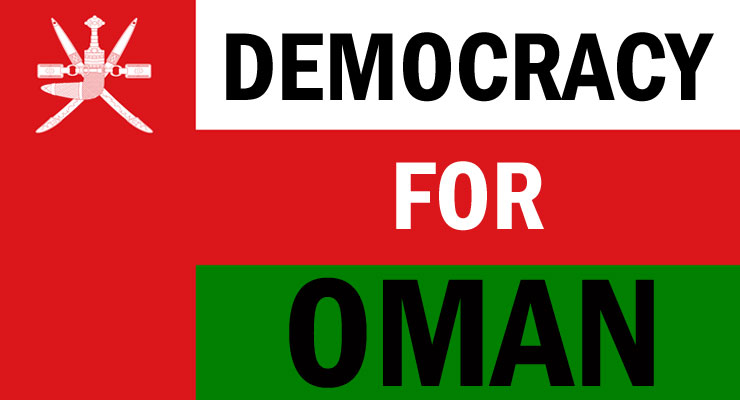
As the United States and Iran commenced with nuclear negotiations last spring and into the early summer of 2015, the United States reportedly over looked the human right’s record of another important gulf country that helped in the negotiations, Oman. Such short-sighted policy is a danger to the region and beyond.
“Oman was the only hold up” an anonymous state Department official said regarding the publishing of a 382-page report on recent human right’s updates. Oman is a hereditary monarchy, where human rights are extremely limited and the right to voice opposition to the government is almost nonexistent. Numerous laws have been passed in order to restrict the right to address your government for grievances (many passed within these last two years).
According to the last report available produced on Oman’s human rights record published by Human Rights Watch in 2013, the government passed new laws to restrict the freedom of expression through onerous defamation laws. The government also passed new laws to restrict the right to freedom of assembly both in law and practice, and has followed up by using force to break up peaceful demonstrations and arresting individuals present at protest.
An example of the consequence of the enacting of these laws, occurred on March 8th 2015 when human rights activist and blogger, Saed Jadad, was sentenced to three years in prison for his political writings, many of which criticize the government.
Mr. Jadad also is known for writing about the human right’s violations of the Omanian government and documentation of past violations by the government. “The evidence indicates that Jaddad is in prison simply for criticizing the Omani government and its policies” Human Rights Watch director for Middle East and North Africa section, Joe Stark said regarding the conviction. “Oman should release Jaddad immediately and drop the outstanding charges against him”.
The risk of Oman continuing the violation of Human rights has threatened the country to be downgraded from its current spot on the State Department list categorized as Tier 2 to the Tier 2 watch list which is only one listing change away from being placed on the Tier 3 list, which has countries like North Korea, Russia and South Sudan.
According to the State Department, the Tier 2 list is defined as countries, “whose governments do not fully comply with the TVPA’s minimum standards but are making significant efforts to bring themselves into compliance with those efforts. The TIVA stands for the Trafficking Victims Protection Act.
“I’m not aware of a case where something like this has happened before” said Mark Lagon. Mr. Lagon was the TIP office ambassador from 2007 to 2009, and he now the director of the Freedom House in Washington D.C.
The new restrictions on the right of assembly could be a response by the Sultan of Oman to threaten future protest against the government as the country underwent protest during the Arab spring in January 2011.
Some of the grievances that protesters had voiced their concerns about included the rising prices of goods, corruption and also lack of job opportunity.
“There are no jobs, there’s no freedom of opinion. The people are tired and they want money. People want to end corruption” 30 year old unemployed protester Ali-al- Mazroui said at one of the protest in 2011. The unemployment rate during the time of the protest was at 7.5%, in 2014, which is the latest available the unemployment rate in Oman was 7.2%.
“We want to see the benefits of our oil wealth distributed evenly to the population” another protester shouted during the protest. “We want to see a scale down of expatriates in Oman so more jobs can be created for Omanis” the protester continued.
Oman is a strategically important country because of its location in the Gulf region and its role as a mediator between the United States and Iran during the nuclear negotiations. The leader of the country, Qaboos bin Said has been the sultan since 1970.
“The sultanate continues to work hard on TIP issues and we take this very seriously” Oman’s Foreign Affairs general secretary Badr Albusaidi said in an interview. “When problems are identified for example, a pattern of underage servants coming from a particular country, we intervene actively” Mr. Albusaidi continued.
In conclusion, if the United States is serious about being the standard bearer in protection of human rights, it should take a fair look at all countries and not allow for countries who are helping our policy objectives to get away with such violations. The people of Oman would be grateful.
Links to sources:
1) Reuters link: https://www.reuters.com/article/us-usa-humantrafficking-oman-exclusive-idUSKBN0U40G720151221
2) France 24 Link: https://www.france24.com/en/20110227-oman-clashes-police-protesters-sohar-demonstrations-political-reform
3) Middle East Policy Council: https://www.mepc.org/journal/middle-east-policy-archives/oman-forgotten-corner-arab-spring
4) U.S State Department Link: https://www.state.gov/documents/organization/236828.pdf
5) Human Right’s Watch Link: https://www.hrw.org/news/2015/03/23/oman-3-year-sentence-rights-activist
6) Front Lines Defenders: https://www.frontlinedefenders.org/SaedJadad
7) State Department Link ( Human Right Watch List definitions): https://www.state.gov/j/tip/rls/tiprpt/2015/243366.htm
8) Oman World 2014 Report – Human Rights Watch: https://www.hrw.org/world-report/2014/country-chapters/oman
Leave a Reply